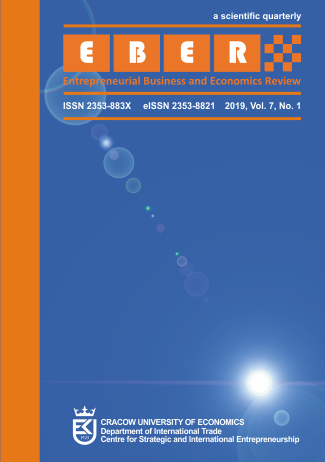Specifics of the Mutual Trade of the Post-Soviet Countries
Specifics of the Mutual Trade of the Post-Soviet Countries
Author(s): Irena Benešová, Luboš Smutka, Adriana LaputkováSubject(s): Geography, Regional studies, Supranational / Global Economy, International relations/trade, Transformation Period (1990 - 2010), Present Times (2010 - today)
Published by: Uniwersytet Ekonomiczny w Krakowie
Keywords: international trade; oil; cluster analysis; regional integration;
Summary/Abstract: Objective: The proposed article discusses specifics of mutual trade between selected countries in the post-Soviet region, its structure, nature and development. Research Design & Methods: To analyse foreign trade, an analysis of competitiveness was used and conducted for 2000 and 2015. Cluster analysis of individual commodity aggregates was conducted, and the monitored countries were divided into several groups. The following indicators were used in the cluster analysis: RCA, coverage of import by export, and the Lafay index. Findings: A decline in comparative advantages in the mutual trade connected with the Russian Federation is substantial; however, the country remains an important business partner for the majority of the monitored countries. There is also considerable dependence on raw materials, which are a significant part of the overall foreign trade. In this regard, Russia or Kazakhstan are extremely dependent on trade performance in raw materials, especially natural oil and natural gas. Implications & Recommendations: Russia and Ukraine bear the closest similarity in the competitiveness of their foreign trade. Contrariwise, Azerbaijan is highly dissimilar, as its indicators of foreign trade competitiveness are significantly different in comparison with the remaining countries. Kyrgyzstan represents a country which reports the highest degree of resemblance in its indicators of foreign trade competitiveness to the other post-Soviet countries. The degree of similarity is low between Russia and, for example, Kazakhstan and Kyrgyzstan. It is evident that the Eurasian Economic Council countries focus on different commodities in order for the trade structure to be utilised and not to be identical. Contribution & Value Added: Contribution to the international trade theory and political economy.
Journal: Entrepreneurial Business and Economics Review
- Issue Year: 7/2019
- Issue No: 1
- Page Range: 29-43
- Page Count: 15
- Language: English

